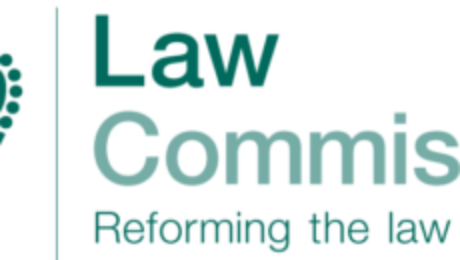ACRCG Response to Law Commission
ACRCG says the law does not work for adult care leavers asking for their care records.
We have made a submission to the Law Commission’s 14th Programme highlighting the need to change the present law.
The Law Commission will decide what to include in its programme in early 2022
Our submissions is available on our Resources Page here
The Law Commission is an independent body which reviews current law and make recommendations for improvements and reform to Parliament. It is considering whether to include in its 14th programme a review of the law about identity and the barriers people experience when trying to find out about their origins and family connections.
- Published in General
Darren Coyne (1972 – 2021)
We are deeply sad to announce that Darren Coyne, an irreplaceable founder member of the ACRCG, has unexpectedly died on 25 May 2021.
Darren was a fearless activist and passionate about improving the rights of adult care leavers to know about their time in care and their family connections. He worked tirelessly to identify and overcome the deficits, barriers and ‘carelessness’ of the system and its impact on persons asking to see their care records.
He was passionate in speaking out about the misuse and misunderstandings of data protection laws to deny people their right to know their family connections There are many care leavers who will have known Darren because of the support he gave them when, sometimes in very difficult and challenging circumstances, they had asked to see their care files, working with them to make ‘narrative sense’ of their time in care.
Darren spoke passionately and lucidly to everyone about the impact that being denied knowledge and memories of time in the care system had on his own and other people’s life journeys. He spoke persuasively to policy and law makers, academics, prison governors, local authority and voluntary sector case workers preparing files: he spoke at conferences, he worked with colleagues in research projects, he organised seminars and workshops, he went to where people needed his assistance, his advocacy and his knowledge. He went way beyond doing this work as a
‘job’: it was his mission. And, central to his mission, was the principle of working in partnership with all care leavers, giving emotional and mentoring support. The Care Leavers Association has lost a valuable colleague.
Recently, Darren made a podcast with John-George Nicholson for Research in Practice: we uploaded it to our website. Please take time to listen to Darren and John-George: it tells us so much about the experiences of care leavers reading their case records so succinctly.
We owe it now to Darren to keep steady in our advocacy work with care leavers to establish a much fairer framework of their rights to their family story. That is what Darren would expect us to do: to go forward fearlessly.
We offer our condolences to his daughter, his family and friends and to care leavers who have lost a true supporter and advocate and to his colleagues at Care Leavers Association and colleagues in the various projects Darren was involved with.
- Published in General
ACRCG makes a submission to the Joint Committee on Human Rights
The UK Governmen,t as promised in its most recent election Manifesto, has set up a Review of the Human Rights Act. Its focus is how does the Act work in courtrooms, and the relationship between government, parliament and the courts.
At the same time, Parliament’s Joint Committee on Human Rights called for brief evidence from across the sector to highlight ‘everyday ways’ in which the HRA has been helpful in pushing forward the rights of citizens. We believe that Article 8 which requires public bodies to respect family life is an important right for adult care leavers.
The Access to Records Campaign Croup’s submission to the Joint Committee is set out below. We agreed that the Committee can publish our submission and send it as evidence to the Independent Review.
We want our contribution to push forward on the campaign to get specific legislation outside of the current data protection law to ensure that the rights of adult care leavers to knowledge about their time in care and their family connections are properly acknowledged.
Submission to JCHR on behalf of the Access to Care Records Campaign Group
Who we are
The Access to Care Records Campaign Group works alongside adult care leavers who are seeking to make sense of fragmented memories of growing up in the care of the State. Currently, the only way an adult care leaver can get a copy of their case records is by making a Subject Access Request under the Data Protection Act 2018. For many adult care leavers this process is not an effective way of getting information about their family and their time in State care.
Why we are making a submission
We see no sound reason to alter the Human Rights Act 1998. The Act [HRA] is and must continue to be a central legal resource for individuals marginalised by the State to redress the imbalance in power between them and the State and the consequence of its actions which have life long impact on their identity and their understanding of their origins. It is essential that the courts continue to have the power to rectify actions by public authorities which fali to take into account their duties under the HRA.
Why Articles 6 and 8 are important to adult care leavers
Whilst the Data Protection Act 2018 may, if files have not been carelessly lost or damaged or in fact have few details, enable the adult care leaver to have information about themselves from their case records, often local authorities and other care organisations, are reluctant to exercise their discretion to provide third party information from these records without consent. This defensive practice means that an adult care leaver is too often not able to make narrative sense of who they are and who their family consists of. This clash between the dual rights of respect for an individual’s privacy and the rights of the adult care leaver to know about their family life results in an outcome where much of the key information they are seeking is redacted. There is limited recourse to the Information Commissioner’s Office. The court is, however, the last resort for enforcing rights and Article 6 and Article 8 are key rights for a person who has been removed from their family of origin into the care of the State. And, too often, the State has been a ‘care-less’ parent.
Working with adult care leavers seeking their care records
Social workers and other child welfare professionals embrace the HRA as it enables them to ensure best practice in respecting the rights of an individual and their rights to experience family life and fair process. They know and welcome that they are accountable to the courts for ensuring a rights based professional practice when, at times, the interests of bureaucratic structures within a public authority tend to march in contradiction to the standards of their professional practice. The HRA is a significant and powerful force for reinforcing a practice culture of respect for human rights. Its enforcement at every level in the justice system is critical.
The structure and philosophy of the HRA and its mechanism of enforcement is a powerful tool for advocacy whilst working in partnership with adult care leavers who are consistently marginalised by the system which had responsibility for their care when they were children and young people. Section 3 of the HRA is critical to ensuring the overarching impact of a rights based approach to the interpretation of all legislation, including the Data Protection Act 2018 as well as social care legislation.
Deficits in the independent Review Enquiry
We are submitting this response to the Joint Committee on Human Rights because we consider that the Terms of Reference and the questions of the Review Enquiry are drawn too narrowly to enable campaigning and community advocacy groups to set out effectively how important and central this Act has been to our practice during the 20 years since its implementation. The focus of the current Review is about how the courts have interpreted and implemented the HRA.
What Access to Care Records Campaign Group wants
ACRCG is seeking to achieve legislation which takes the rights of an adult care leaver to their personal and family history outside of data protection legislation and process and replaces the present legal route with a dedicated and more empathetic legislative framework which addresses their unique experiences and rights to knowledge about their family life. For campaigning groups such as ours, the HRA is coherent and effective legislation and a key tenet of partnership with marginalised adult care leavers seeking redress from too frequently the neglectful care of the State.
- Published in General
Research in Practise Podcast
Darren Coyne of the Care Leavers Association and a member of our Campaign Group and John-george Nicholson share their personal stories of accessing their care files as adults. Both Darren and John-george were actively involved as research participants in the MIRRA project at UCL.
In these two podcasts, they talk about the emotional impact of receiving care files, the importance of child-centred recording, and provide suggestions of how practitioners can implement good recording.
The podcasts enable social workers and data governance officers to reflect on:
- What it means emotionally to access your care file.
- The experience of reading your care file, and its emotional impact.
- The significance of redaction and not hearing your voice within your care records.
- What child-centred record keeping would look like and why it is so important.
- The power and use of language within records, and recording positive ‘joyous moments’, and times of celebration not just negatives.
The second podcast sets out recommendations to take forward in your organisation or team, the importance of involving the child and young person in the process of creating records which will be central to their knowledge of their lives when they are adults.
Follow the link below to listen to the podcast.
- Published in General




